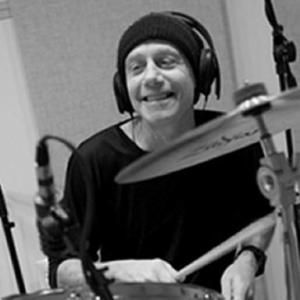
Morris Levy
‘When we win a Golden Globe, it helps us sell more shoes.’
Amazon founder Jeff Bezos, 2016
The Spotify weirdness continues, as does movingtheriver’s ambivalence about the platform (its only real draw seems to be convenience, like everything else in the tech game. After all, music is only ‘content’, or at least that’s how it was recently described by MD Daniel Ek.)
As Ted Gioia has pointed out, Spotify’s current modus operandi seems to be: cut costs (staff redundancies), raise prices for customers, and play games (create AI music so the ‘human element’ can be ruled out and composers not paid.)
One’s reminded of that line in Robert Altman’s ‘The Player’, when Tim Robbins’ stressed movie exec, answering the charge that anyone could write a script simply based on the headlines in the morning papers, says something like: ‘Great – remove the screenwriter and we might really have something going here.’
If you ever get a job with one of the ‘big three’ music companies (Warner, Sony, Universal), you’ll probably have to undergo an ‘introduction to the music business’ course which emphasises the noble goal of collecting royalties for musicians and songwriters. But the more money at stake, the less this seems to happen. One’s reminded of Morris Levy’s stock riposte to disgruntled musicians and songwriters: ‘If you want royalties, go to Buckingham Palace’.
But then it’s important to remember labels like Blue Note, Virgin and Island, and people like Alfred Lion, Simon Draper and Chris Blackwell, who were always music fans first and foremost. Ditto almost everyone I’ve come across working in niche genres (jazz, classical etc.).
As for Spotify’s marketing pitch about discovering new music? I can’t think of any new music I’ve discovered via Spotify (but have discovered some good new podcasts). My discovery of new music comes from the old gatekeepers – magazines, radio programmes, music books, blogs, press releases. I probably use Spotify like a lot of other people – to ‘organise’ and compile mostly old music that I’ve previously owned or hired from the library etc. etc.
Then there’s the staff redundancy issue, as above. Anyone who follows Spotify on LinkedIn will see them posting all kinds of strange techie jobs. You can be sure that almost none are focused on music. Very occasionally you notice a half-decent functionality upgrade (most recently, finally you can move a track up or down a playlist without too much faff, but there are still a myriad of problems – this video highlights them very well) but it’s probably safe to assume they are mainly seeking newer and better ways to snoop on their users.
So the Spotify conundrum continues. When will I finally give up my Premium subscription? When it goes up to £12.99 a month? When a whole load of catalogue starts to go ‘missing’? Watch this space.

 ‘No crap beats’ – if that wasn’t on Keith Leblanc’s business card, it should have been.
‘No crap beats’ – if that wasn’t on Keith Leblanc’s business card, it should have been.